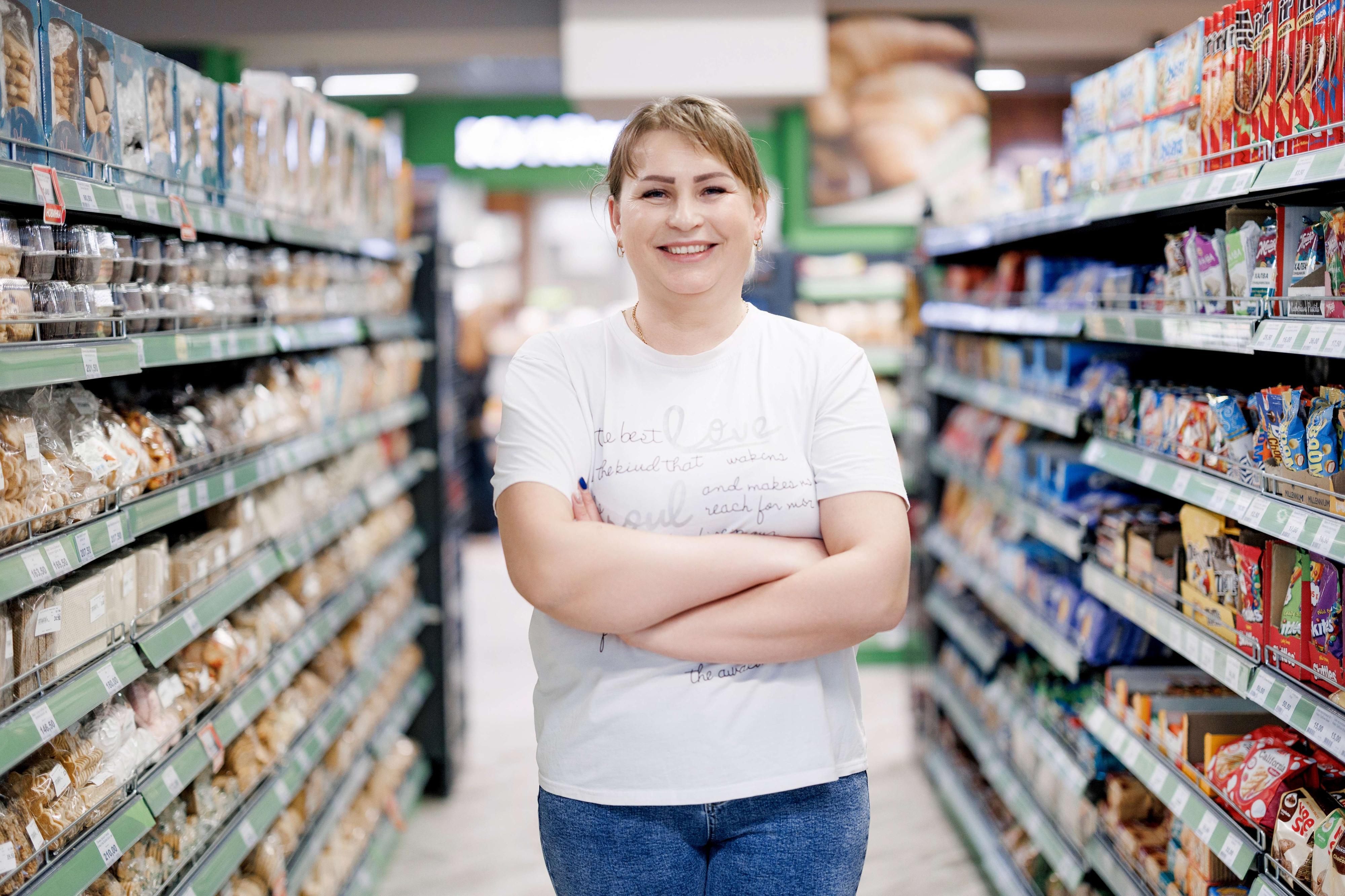Cooperation in action Vocational training for a better future
The BMZ is assisting Ukraine in providing training so that more workers can acquire skills, because many of Ukraine's men are fighting at the front and some six million displaced people have sought refuge in other countries. Throughout the country, there is a shortage of skilled workers. This is a major problem – especially in those sectors that are crucial for the country's economic recovery and its reconstruction.
As part of the cooperation programme, equipment is being provided for vocational schools, and the BMZ is supporting teacher training and curriculum development. As a result, modern education centres are being set up in Ukraine in the midst of war. Their work also helps to prepare the country for recovery.
The community where Tetyana now lives also has a vocational school. With support from Germany, some rooms in the school have been turned into housing for internally displaced people. However, to Tetyana and her children the school became more than just a new home. The young mother was also able to enrol in an accountancy and IT training programme.
After she completed her training, she was able to find a job quickly as an accountant at a small supermarket. She says that she works hard. “But I'm fine with that,” she says. “I feel strong and confident when I think of our future.” She also says that her example has inspired her oldest son to follow in her footsteps. He is now training to be an electrical mechanic in the IT and software sector. His younger siblings still go to school, but Tetyana has no doubts about their future: “They are both hard workers and they, too, plan to enrol in vocational training.”
Her husband has now come back from the front and works as a long-distance lorry driver, providing another income for the family. As her husband is gone from home so much, the young mother still has a lot of responsibility for the family. She goes to work, looks after her three children and organises their daily lives at the refugee shelter. Yet her main sentiment is pride in what she has achieved: “I'm able to be independent and provide for myself and for the children.”
The EU4Skills programme
Ukraine is faced with a severe shortage of skilled workers, which is hampering the country's economic recovery. The EU4Skills programme provides training opportunities for internally displaced people. So far, it has assisted 154 vocational schools in turning rooms into refugee accommodation.
This has enabled the schools to host over 4,000 internally displaced persons within the first few months of the war. And the training programmes offered have benefited over 5,900 people. The Federal Ministry for Economic Cooperation and Development (BMZ) has commissioned the programme. The EU is also providing funding.
In addition to providing equipment for vocational schools, the programme has a further focus: helping to develop an effective vocational training system. Together with its Ukrainian partners, the BMZ is developing competency-based training and examination systems and supporting modern teaching and learning methods. This part of the programme is funded by the EU, Germany, Finland and Poland.
* Full names of persons and places withheld for security reasons
As at: 11/03/2024
